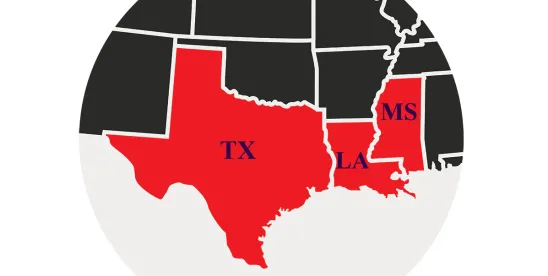In Banco Mercantil De Norte, S.A. et al. v. Juan Jose Paramo, the Fifth Circuit recently affirmed a Texas district court’s denial of a motion to quash a 28 U.S.C. § 1782 subpoena issued to Juan Jose Paramo, a Mexican national residing in Texas. The opinion demonstrates that Section 1782 may provide a potent tool for foreign litigants to obtain discovery of financial information in the possession of individuals or entities located in the U.S.
In Banco Mercantil De Norte, a group of foreign banks sought, via subpoena, discovery of financial information from Paramo in connection with a civil action involving a loan dispute and claims of fraud filed in Mexico. Paramo filed a motion to quash the subpoena. On appeal, the Fifth Circuit affirmed the trial court’s denial of Paramo’s motion to quash.
The banks issued the subpoena to Paramo under 28 U.S.C. § 1782. Section 1782 allows for a party to seek production of documents or testimony from a person in the U.S. for use in a “foreign or international tribunal.” The Fifth Circuit noted that, in determining whether to grant a Section 1782 application, the trial court may consider the Intel factors laid out by the United States Supreme Court in Intel Corp. v. Advanced Micro Devices, Inc. Those factors include whether the respondent is a participant in the foreign proceeding, the nature of the foreign proceeding, the foreign court’s receptivity to U.S. assistance, any attempts by the respondent to circumvent discovery in the foreign court, and the burden of the requests.
The district court, applying the Intel factors, rejected Paramo’s objections to the subpoena and denied his motion to quash, and the Fifth Circuit agreed. Specifically, the Fifth Circuit found that Paramo’s blanket assertion of his rights against self-incrimination was untimely and nonspecific and that none of Paramo’s objections showed the district court abused its discretion in denying the motion to quash.
The Fifth Circuit agreed with the district court that one of the purposes of Section 1782 is “to provide efficient means of assistance to participants in international litigation in [U.S.] federal courts.” The opinion serves as a reminder that Section 1782 is a useful tool for a litigant in a foreign action to obtain discovery from a person or entity in the U.S.
In doing so, the opinion lends further support to litigants seeking discovery in the U.S. under Section 1782 in aid of enforcement proceedings pending in foreign courts.




 />i
/>i

